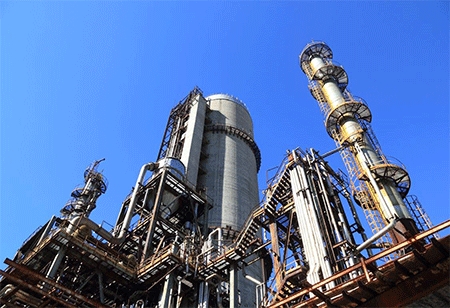
Element Fuels Holdings, a startup based in Dallas, has proposed building a new hydrogen-powered oil refinery and power plant at the Port of Brownsville in South Texas. The estimated $4 billion project would be the first entirely new large-scale oil refinery constructed in the United States since the 1970s.
The facility would process domestic shale oil and utilize hydrogen fuel to produce low carbon intensity gasoline, diesel, and jet fuels. It would have the capacity to produce over 160,000 barrels per day of refined products. The project would also generate a surplus of renewable electricity from its hydrogen power plant to supply to Texas' grid.
Element Fuels aims to have the refinery operational by 2027. The company completed initial site preparation and pre-construction activities in 2024 on a 240-acre parcel at the Port of Brownsville.
Modern Texas oil and gas refineries and rigs utilize advanced technologies and process safety measures, making them inherently safer than older facilities. New refineries and rigs, on-shore and off-shore, are designed from the ground up with the latest equipment, control systems, and risk management practices. They incorporate lessons from past incidents to prevent fires, explosions, and releases. Stringent regulations and oversight also require new refineries to meet strict environmental and safety standards, as any good Houston maritime injury lawyer knows.
The refinery would utilize advanced technologies to maximize the production of clean fuels and renewable power. The use of hydrogen fuel would limit the facility's carbon dioxide emissions.
Element Fuels states the project would create hundreds of high-paying jobs in Brownsville. They also plan to work with local officials on affordable housing and sustainability initiatives to benefit the community.
The company asserts the refinery would set a new standard for low-carbon refining in the United States. It aims to produce higher quality fuels to aid in the transition from fossil fuels.
Constructing a new oil refinery from scratch is an immense challenge. Financing such a massive project could prove difficult, especially as demand for oil-based fuels may begin declining over the next 10-20 years.
The founder of Element Fuels proposed similar projects in South Texas in the past that did not come to fruition. One previous effort resulted in bankruptcy. Executing on the ambitious vision will require overcoming many hurdles.
The potential new refinery would be the first major addition to domestic refining capacity in decades. It comes as some older refineries on the coasts have shut down in recent years.
If successful, the project could signal a shift in refining infrastructure towards the Gulf Coast region closer to booming shale oil production. The hydrogen-powered plant would also showcase new clean fuel technologies.
Between August 2017 and March 2023, there were 1,539 injuries and 7 deaths reported across 153 refineries in the US. Only 15 refineries reported zero injuries or deaths. In fire-related incidents, one worker died at a refinery in Galveston, Texas in May 2023, while six people were treated for injuries at LyondellBasell refinery in Houston, Texas in January 2023.
While no complex industrial facility is risk-free, new refineries today clearly benefit from decades of improvements in design and safety processes compared to older sites. Building to modern standards is crucial for safe, reliable, and environmentally sound refinery operations, and it’s hoped the new Element Fuels Holdings refinery in South Texas remains incident free once it becomes operational.
We use cookies to ensure you get the best experience on our website. Read more...